|
| |
This week in: Peace & Security Publications |
IPSI | Africa | Americas | East Asia | Europe & Central Asia | Middle East | South Asia
|
|
|
|
| |
This week in Peace & Security Publications
|
|
|
|
| |
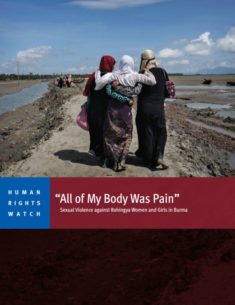
HRW: This report is based on 52 interviews with Rohingya women and girls, including 29 survivors of rape, who fled to Bangladesh since these operations began. Rape survivors were…
|
|
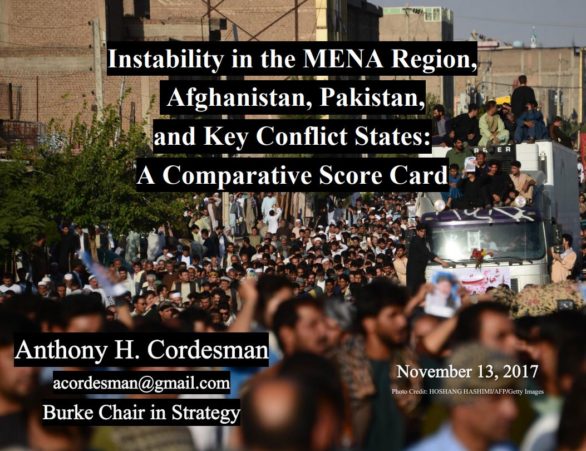
CSIS: If the U.S. is to fight extremism and instability in the Middle East, North Africa, and other key conflict countries in the developing world, it must address the civil dimension of war as well as the military one…
|

HRW: Public hospitals and private clinics in China continue to offer so-called “conversion therapy,” which aims to change an individual’s sexual orientation from homosexual or bisexual to heterosexual…
|
|
|
|
|
|
| |

Creative Learning Board Member Johanna Mendelson Forman talks about unique course offered at American University called “Conflict Cuisine: An Introduction to War and Peace Around the Dinner Table” to discuss how food and politics are intertwined.
|

2016 The Hague Symposium Keynote Speaker Fatou Bensouda will investigate alleged war crimes in Burundi.
|
|
|
|
|
|
| |
This week in Sub-Saharan Africa
|
|
|
|
| |
KENYA: Top Court hears petition to cancel election, again
On Wednesday, Kenya’s Supreme Court heard two petitions to annul last month’s presidential election, which was already a re-run ordered by the Supreme Court after it annulled an August 8 election due to “irregularities and illegalities.” Raila Odinga’s National Super Alliance Party and President Kenyatta’s Jubilee Party petitioned to join the case as interested parties, but were denied by the court. Comment: The two petitions were filed to overturn the results of the controversial re-run election on October 26, which was boycotted by primary opposition candidate Raila Odinga and saw the incumbent President Uhuru Kenyatta win 98 percent of the vote. Unrest followed the results of the second election when the opposition party National Super Alliance encouraged its base to protest across the country at several companies with ties to the government. (News24, CNBC, The Standard News)
|
|
|
|
|
| |
LIBERIA: Special Peace Panel Formed to Mitigate Elections Crisis

|
|
On Monday, several Liberians from influential organizations established a special peace panel to find solutions regarding the current political crisis in Liberia. The panel includes members from the Traditional Council of Liberia Crusader for Peace, National Imam Council of Liberia, the Women in Peacebuilding Network (WIPNET), and several other national civil society organizations. Members of this select peace panel are entrusted with the responsibility to hold peace talks with contending parties including the Unity Party, Liberty Party, Alternative National Congress (ANC), All Liberian Party (ALP) and other parties that are motivated to find a way forward in ending the political crisis in the country. Comment: There is anxiety that the standstill of the election would create another problem for Liberia as President Ellen Johnson Sirleaf will have to leave power by January 3, 2018. The Constitution does not spell out who will take power if tenure of the President, Vice President, and Speaker expires as is expected to take place in the wake of the political saga. (All Africa News, Front Page Africa 1, 2, The New York Times)
|
|
|
|
|
| |
ZIMBABWE: President Robert Mugabe and military talks continue amid political limbo
| |
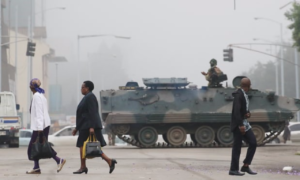
|
On Thursday, Zimbabwe’s primary opposition leader, Morgan Tsvangirai, called on President Robert Mugabe to resign as military leaders continued their effort to end Mugabe’s decades-long rule. Zimbabwe’s military seized control of state institutions early Wednesday and placed Mugabe under house arrest, thereby throwing the country into political limbo, while insisting it was not staging a coup. Speculations that Emmerson Mnangagwa, the influential Vice President dismissed by Mugabe last week, will be tapped to become the country’s next President are common. The War Veteran’s Association, a powerful lobby and longtime ally of Mugabe, is planning on hosting a massive rally in Harare this Sunday in support of Mnangagwa, a clear indication of changing political allegiances. Comment: Mnangagwa’s dismissal fueled speculation that Mugabe was clearing the way for his wife, Grace, to take over the presidency in the event of his retirement or death. Soldiers are still deployed at the parliament, presidential palace, and the state broadcasting agency. Despite the political shakeup, the nation has remained calm, with people going about their daily business. (Al Jazeera, CNN News, The Guardian, Reuters)
Researched/Written by Brian Adienge
|
|
|
|
|
| |
This week in the Americas & Caribbean
|
|
|
|
| |
CANADA: Gender equity strives to include Indigenous Women
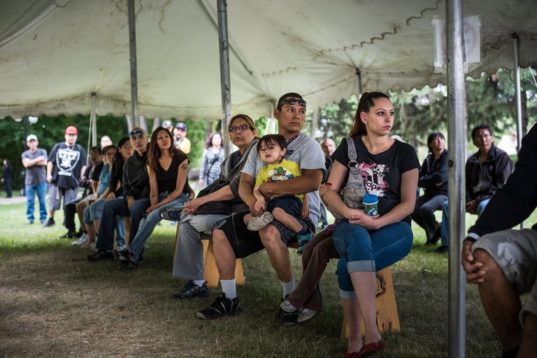
|
|
Last Friday, the Canadian Senate approved legislation to amend a 141-year-old law that prevented indigenous women and their descendants from obtaining the same rights allocated to indigenous men. Previously, if a First Nations woman married a non-First Nations man, she and her descendants lost access to their Indigenous rights and communities. With the bill expected to pass in the House of Commons, various legislators have voiced their concern over a lack of an explicit deadline to assist in granting access to Indigenous Women through the means of consultations. The process of consultations with Indigenous Women who have lost their rights may not be completed by 2019, which is the next federal election. Comment: Since the Indian Act of 1876, First Nations have been denied autonomy under specified treaties and have had their lands reassigned due to a lack of federal protections. (Canada Newswire, Huffington Post, The New York Times, Stanford Social Innovation Review)
|
|
|
|
|
| |
PERU: Country’s President denies receiving bribes from Brazilian company during campaign
On Wednesday, Peruvian President Pablo Kuczynski denied receiving any donations or bribes from Brazilian construction company Odebrecht SA. Allegations made by the company’s former president, Marcelo Odebrecht, stated that President Kuczynski worked for the firm as a consultant over a decade ago. Earlier this year, President Kuczynski ordered Odebrecht SA to sell its operations in the Andean region of Peru and halt business with government officials after the company admitted to bribing various officials. Comment: Odebrecht SA has been implicated in various corruption and bribery cases through Latin America. President Kuczynski stated that he never received contributions for the 2011 and 2016 election campaigns. (Andina – Peru News Agency, BBC News, Bloomberg News, Reuters)
|
|
|
|
|
| |
UNITED STATES: Keystone pipeline spills more than 200,000 gallons of oil in South Dakota
On Thursday, the TransCanada Corporation’s Keystone pipeline leaked 210,000 gallons of oil in northeastern South Dakota. The pipeline spill occurs days before the Public Service Commission in Nebraska is scheduled to decide whether to allow the sister pipeline, Keystone XL, to go through the state. TransCanada has faced spills before in 2011 and 2016, yet the most recent leak in South Dakota has been the worst one to date. Comment: President Trump approved TransCanada to begin construction on the Keystone XL pipeline earlier this year, although approval still must be granted by the PSC of Nebraska. (CNN, ABC News, NPR News, The Washington Post)
|
|
|
|
|
| |
VENEZUELA: Country to receive debt assistance from Russian government
On Wednesday, the Venezuelan and Russian governments came to an agreement for a USD 3.15 billion agreement to restructure Venezuela’s debt. The payment plan will be in effect for the next 10 years, with Venezuela only making minimum payments for the first 6 years. Russia has officially become the country’s primary foreign supporter, assisting the country with finances and oil production. Comment: The Chinese Foreign Ministry has also signed off on the deal between Venezuela and Russia, noting that the agreement was “appropriately” handled and trusts that Venezuela will begin to remedy the debt. (TeleSur, Latin American Herald Tribune, Reuters, Wall Street Journal)
Researched/Written by Blessing Ikpa
|
|
|
|
|
| |
This week in East Asia & Pacific
|
|
|
|
| |
AUSTRALIA: Citizens vote in support of gay marriage
On Tuesday, results of a nationwide non-binding vote on same-sex marriage revealed 61.1 percent voted in favor of its legalization. 79.5 percent of all eligible voters participated in the survey held via the postal service. Shortly after the results, Liberal Party Senator Dean Smith introduced the bill allowing same-sex couples to marry. The bill enables religious representatives to refuse to officiate LGBT ceremonies. Prime Minister Malcolm Turnbull predicts the bill to be passed by Christmas. Comment: Upon taking office in 2015, Turnbull committed to holding a national plebiscite on same-sex marriage. The voluntary postal survey comes after Senate failed to obtain the majority for a compulsory national vote twice. (The Australian, CNN, US News, BBC, The Guardian)
|
|
|
|
|
| |
CHINA: “Gay Conversion Therapy” raises concerns among Human Rights groups
On Tuesday, Human Rights Watch (HRW) released a report highlighting the abuses suffered by 17 Chinese citizens who were forced into “gay conversion therapy” by their families. The treatment involves verbal and mental abuse, forced medication, and electric shock therapy. Legislation to protect homosexuals from conversion therapy has existed since 2012, but the law has not been implemented. Comment: In 1997, homosexuality was decriminalized in China and since 2001 it is no longer listed on the official list of mental disorders. According to the United Nations Development Program, 70 million homosexuals live in China. (South China Morning Post, NY Times, BBC, Human Rights Watch)
|
|
|
|
|
| |
MYANMAR: Military report acquits security forces from Rohingya atrocities
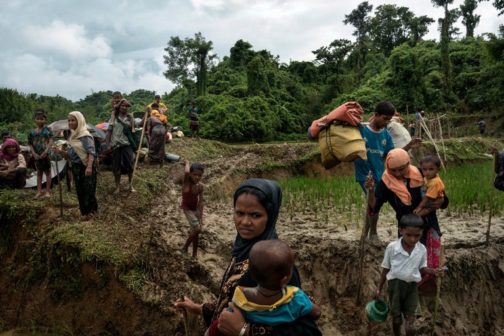
|
|
On Monday, Myanmar’s military released an internal report denying the widespread crimes against Rohingya Muslims. Amnesty International and other human rights organizations have accused the military of massacring and raping Rohingya. The report by the military claimed security forces “never shot at innocent Bengalis” and “there was no death of innocent people.” Instead, Myanmar’s military blamed the Arakan Rohingya Salvation Army (ARSA), a group dedicated to “defend, salvage and protect the Rohingya people,” for attacking 30 police posts and army battalion headquarters on August 25. Comment: The Rohingya, an ethnic minority that is predominantly Muslim, made up the majority of the population in the townships of northern Rakhine state. Myanmar’s government refuses to officially consider the Rohingya an ethnic group and has denied them citizenship since 1982, which effectively renders them stateless. Since August 2017, the government has cracked down on the Rohingya after attacking police posts. The government accused the Rohingya of escalated violence and destruction, despite several arriving with gunshot wounds. UN Office for the Coordination of Humanitarian Affairs estimates that 618,000 Rohingya have fled Myanmar since August 25. (ABC, CNN, BBC, The Guardian)
Researched/Written by Rabia Uddin
|
|
|
|
|
| |
This week in Europe & Central Asia
|
|
|
|
| |
POLAND: 60,000 people march in nationalist rally on Independence Day
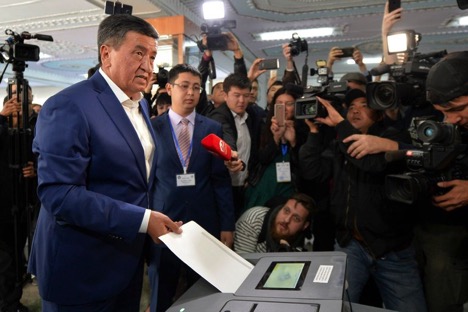
|
|
On Saturday, 60,000 people participated in the annual “March of Independence” organized by All-Polish Youth, a nationalist movement associated with the right-wing extremist National Movement party. Marchers held signs and shouted slogans such as “Pure Poland, white Poland,” and “Pray for Islamic Holocaust.” They were joined by Nationalists and alt-right supporters from across Europe. Members of the Polish government expressed support of the rally, with Polish Interior Minister Mariusz Blaszczak calling the march a “beautiful sight.” The police reported that 45 people were arrested; however, all of those arrested were from the smaller, 2,000-person counter-protest. Comment: The All-Polish Youth has been staging this march since 2008. It takes place on Poland’s Independence Day, which celebrates Poland’s regained sovereignty at the end of World War I. The event has been increasing in size every year; Politico reports that in 2010 only a few hundred people participated. (BBC News, The Guardian, Washington Post)
|
|
|
|
|
| |
RUSSIA / UNITED KINGDOM: Research shows that Russian-language Twitter accounts may have sought to influence Brexit vote
On Wednesday, researchers from Swansea University and the University of California, Berkeley released data from an upcoming paper citing that 156,252 Russian-language Twitter accounts began tweeting in English in the weeks before Brexit in order to sow discord before the vote. These tweets appear to focus on themes of protectionism, nativism, or anti-Muslim propaganda. The tweets around the Brexit vote increased in numbers as the date of the referendum moved closer. Two weeks before the vote, users from these accounts sent approximately 1,000 tweets a day. Tweets then increased to 45,000 in the last 48 hours and 39,000 on the day of the vote. Researcher Laura Cram from University of Edinburg argues that the research cannot say whether these accounts were trying to directly influence Brexit or if their influence was a side effect of their attempt to wreak discord generally. Sputnik News considers the research as unsubstantiated and called it “anti-Russian hysteria” attempting to “blame its political woes on Moscow.” Comment: Twitter banned Russian news agencies Sputnik News and RT from placing ads on their site in October because of accusations by Western intelligence agencies that they used these ads to attempt to influence the 2016 U.S. Presidential elections. (Sputnik News, The Times of London, New York Times)
|
|
|
|
|
| |
REGIONAL: Central Asian leaders agree to further cooperation at meeting with EU
On Friday, Foreign Ministers from Kazakhstan, Kyrgyzstan, Tajikistan, Turkmenistan, and Uzbekistan met with leaders of the European Union for the 13th EU-Central Asia Ministerial Meeting in Samarkand, Uzbekistan. The Foreign Ministers agreed to the Program on Mutual Cooperation for 2018-2019 which outlined further cooperation between their countries in the areas of security, trade, investment, transportation, energy, tourism, and culture. There was also agreement amongst all parties that there should be a new EU Central Asia Strategy outlined by the end of 2019. Comment: The EU reaffirmed its support for responsibility and cooperation in the region, including programming aid of EUR 1 billion until 2020. (Azer News, The Times of Central Asia, Radio Free Europe)
Researched/Written by Amy Pipher
|
|
|
|
|
| |
This week in the Middle East & North Africa
|
|
|
|
| |
IRAN: Outpouring of international aid after 7.3 magnitude earthquake leaves hundreds dead
| |
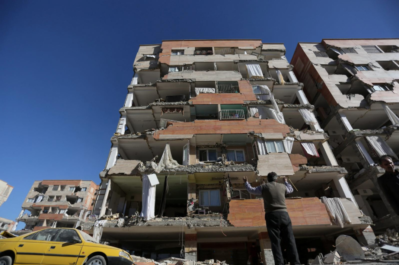
|
On Sunday, a 7.3 magnitude earthquake struck the northern part of the Iran-Iraq border, leaving more than 530 dead, 7,460 people injured and nearly 70,000 displaced. Iran’s Islamic Revolutionary Guards Corps (IRGC) Commander Major General Mohammad Ali Jafari is overseeing the rescue operations, while the Iranian Red Crescent Society deployed nearly 174 rapid rescue response teams. The office of UN Secretary-General António Guterres issued a statement saying the “UN stands ready to assist if required.” Israeli Prime Minister Binyamin Netanyahu announced on Wednesday that his country offered the International Committee of the Red Cross medical assistance for both Iraq and Iran, noting “their quarrel is with the Iranian government and not their people”. Comment: The earthquake’s epicenter was 19 miles outside the Iraqi city of Halabja and was felt as far away as Dubai and Mediterranean coastal states. The vast majority of those injured and killed from the earthquake occurred in Iran, with less than 10 dead in Iraq, due to the quake taking out more than 40,000 Iranian properties. Iranians are accusing the government of corruption in permitting shoddy construction and infrastructure permits. (Al Jazeera 1, 2, New York Times, AP 1, 2)
|
|
|
|
|
| |
SAUDI ARABIA: Leaked Saudi documents outline new peace plan with Israel
| |
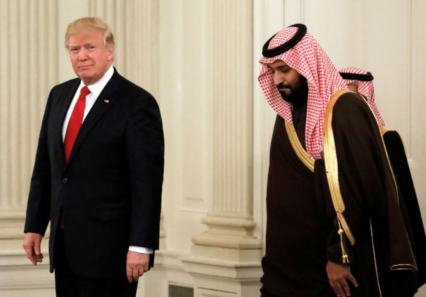
|
On Tuesday, Lebanese newspaper Al-Akhbar claims to have obtained a secret document from the Saudi Foreign Ministry detailing a renewed peace agreement with Israel based on the Kingdom’s Arab Peace Initiative with Israel from 2002 and current U.S. efforts for peace in the region. In the unverified report, Saudi Arabia proposes internationalizing the city of Jerusalem, Palestinians forfeiting the right of return, as well as the dismantlement of Israel’s nuclear weapons program. In exchange, Saudi Arabia expects the United States to apply increased pressure on Iran and sanctions for its ballistic missile program, as well as increased intelligence cooperation against Iran and Hezbollah’s criminal activities. The news comes on the heels of a report that Saudi Arabia pressured Palestinian Authority President Mahmoud Abbas to accept U.S. President Donald Trump’s peace plans or resign in a surprise visit to Riyadh last week. Comment: Since President Trump announced his plans to forge a comprehensive peace agreement in the Middle East, calling it “the ultimate deal” soon after he won the election, U.S. officials are now currently drafting a blueprint to end the decades-old conflict between Israel and Palestine. (Al-Akhbar, Al-Araby 1, 2, Jerusalem Post, New York Times)
|
|
|
|
|
| |
REGIONAL: Macron invites Hariri to France amid fears he is being held captive in Saudi Arabia
On Wednesday, French President Emmanuel Macron invited Lebanese Prime Minister Saad Hariri and his family to visit France. The invitation appears to give Prime Minister Hariri a way to leave Saudi Arabia, where he has stayed since his surprise resignation in Riyadh last week. President Macron clarified to reporters that he was not extending Prime Minister Hariri exile. Concerns are mounting in Lebanon and the world that the Prime Minister was coerced by Saudi Arabia to resign and may be a de-facto prisoner. On Wednesday, Lebanese President Michel Aoun accused Saudi Arabia of illegally arresting and detaining Hariri and considers the move a “hostile act against Lebanon.” Assurances from both Hariri and his brother, Bahaa Hariri, who spoke on the issue for the first time Wednesday have done little to assuage Lebanese concerns. Comment: Last week, Prime Minister Hariri announced his resignation, citing fears of an Iranian assassination plot on his life and Iranian meddling in Lebanese affairs. Many consider the move engineered by Saudi Arabia against Iran in their search for influence in the region. (The Daily Star, Le Figaro, New York Times, AP)
Researched/Written by Zachary Libow
|
|
|
|
|
| |
AFGHANISTAN: More than 30 Afghan security forces killed in series of overnight attacks by Taliban
On Tuesday, Afghan officials reported that Taliban forces had stormed fifteen security posts in the provinces of Kandahar and Farah, killing at least 30 police officers and security force personnel. The Taliban stormed the checkpoints in the middle of the night, utilizing night-vision technology to sneak up on the posts and cause greater casualties. Gun battles continued into the morning at multiple posts, but additional Afghan troops and air support secured control over the posts in both regions. The Taliban claimed responsibility for all the raids via a spokesman on WhatsApp. Comment: There has been an increase in violence against Afghan forces in recent months, as well as an increase in nighttime attacks by the Taliban. It is unclear how the Taliban are obtaining their night-vision technology. (Daily Sabah, NYT, DW, RFE/RL)
|
|
|
|
|
| |
PAKISTAN: Fifteen men found murdered along Iranian border
On Wednesday, the bullet-riddled bodies of 15 men were found in a mountain village in the Balochistan province, in an area favored by human traffickers smuggling people to Europe through Iran. The bodies were found with paperwork that suggests they were intending on seeking work as migrant laborers in Europe, perhaps illegally. All 15 men were reported missing on Tuesday, and hailed from the Punjab province. No one has claimed responsibility for the murders. Comment: Laborers, security forces, and pro-government politicians have previously been attacked in the province by Baluch separatists; Islamic militants linked to al Qaeda, the Taliban, and the self-proclaimed Islamic State also operate there. Since September, five other bodies have been found along the same route. The increase in violence has also raised security concerns for the planned USD 57 billion China Pakistan Economic Corridor, a transport and energy link connecting the two countries. (The Dawn, AP, Reuters)
|
|
|
|
| |
PAKISTAN: Police and religious activists clash over anti-blasphemy protests
| |
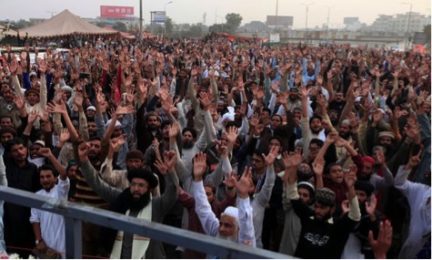
|
On Tuesday, police arrested dozens of members of the Islamist Tehreek-e-Labaik Pakistan party who have brought the capital to a standstill by rallying and blocking main roads for more than one week. The protestors are demanding that the minister of law and justice be fired after the wording of an election oath regarding the declaration of Muhammad as God’s final prophet, was altered. Protestors and religious supporters claim that the wording was changed to placate the minority Ahmadi community, and have declared the actions of the minister and government to be blasphemous. The High Court in Islamabad has ordered that the protests in the capital come to an end, and a court case brought against those responsible for the oath change has been adjourned until November 29. Comment: After the wording of the oath was initially changed, lawmakers immediately passed an additional amendment to fix the “clerical error.” Dozens of people have been sentenced to death in Pakistan under their strict blasphemy laws. (Pakistan Observer, Radio Pakistan, The Guardian, Reuters)
Researched/Written by Natalie A. Landau
|
|
|
|

|
|